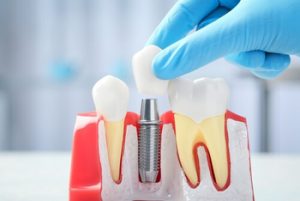Dental tourism is on the rise, and Thailand has emerged as a top choice for people seeking to blend a vacation with full mouth dental implants. While the idea of receiving dental care in a beautiful, exotic location is appealing, it’s important to thoroughly evaluate the quality of the dental facilities and the credentials of the dentists. Conducting comprehensive research is essential, as ensuring high standards of care is crucial even in such an enticing setting. Making informed healthcare decisions requires careful consideration, regardless of the allure of the destination.
What Are Full Mouth Dental Implants?
Full mouth dental implants involve replacing all the teeth in the upper or lower jaw with implant-supported prosthetics. These solutions provide a comprehensive approach to complete tooth replacement.
What Is the Cost of Full Mouth Dental Implants in Thailand?
What Are the Pros of Getting Full Mouth Dental Implants in Australia Over Thailand?
Higher Standards of Healthcare Regulation
One of the primary advantages of opting for full mouth dental implants in Australia is the stringent healthcare regulations. Australian dental clinics adhere to rigorous standards set by government and professional bodies, ensuring that all dental implant procedures meet the highest levels of safety and quality. This regulatory framework ensures that patients receive reliable care, which can significantly reduce the risks associated with dental implant surgery. In contrast, while dental implants in Thailand might be less expensive, the regulatory environment may not be as stringent, which can impact the overall quality of care.
Access to Advanced Dental Technology
Australian dental facilities commonly incorporate state-of-the-art technology to improve the accuracy and efficiency of dental implant procedures. This includes advanced imaging methods such as 3D cone beam computed tomography (CBCT), facilitating meticulous planning and placement of dental implants. Access to cutting-edge technology ensures that patients receive optimal care tailored to their specific needs.
Expertise and Training of Dental Professionals
In Australia, dentists undergo extensive training and constant professional development to stay abreast of the latest advancements in dental implant surgery. Australian dental professionals are often members of reputable organisations such as the Australian Dental Association (ADA), which mandates adherence to high standards of practice. This ensures that the dentist performing your full mouth dental implants is highly skilled and knowledgeable.
Comprehensive Aftercare and Follow-Up
Effective post-surgical care is vital for the success of dental implants. Australian dental centres offer comprehensive aftercare strategies, including scheduled follow-up appointments to oversee healing and ensure the successful integration of implants into the jawbone.
This level of ongoing support is essential for addressing any complications promptly and maintaining the health of the implants. Dental tourism often complicates aftercare, as returning to Thailand for follow-up visits can be impractical and costly.
Transparency in Cost and Quality
The cost of dental implants in Australia might be higher than in Thailand, but the transparency in pricing and the assurance of quality often justify the expense. Australian dental clinics provide detailed treatment plans that outline all associated costs, ensuring there are no hidden fees. Patients are fully informed about the dental implant costs upfront, allowing for better financial planning. In contrast, the initial lower cost of dental implants in Thailand can sometimes be offset by unexpected expenses, such as additional treatments or corrections.
Use of High-Quality Dental Implant Brands
Legal and Ethical Considerations
Australia offers robust legal and ethical protections for patients undergoing dental treatments. These protections include recourse options in case of malpractice or unsatisfactory results, providing an additional layer of security for patients. The legal framework in Thailand may not offer the same level of protection for international patients, which can be a considerable concern when undergoing complex procedures like full mouth dental implants.
Choosing to get full mouth dental implants in Australia offers numerous advantages over Thailand, from higher standards of healthcare regulation and advanced technology to comprehensive aftercare and legal protections. While the dental implant cost in Australia may be higher, the quality of care, expertise of dental professionals, and assurance of long-term success make it a worthwhile investment. If you’re considering full mouth dental implants, Australia provides a reliable and high-quality option that prioritises your health and satisfaction.
What Is the Process of Getting Dental Implants?
Initial Consultation and Assessment
Starting your smile restoration journey with dental implants involves an initial consultation. At this crucial stage, a dentist who is experienced in dental implant treatment will evaluate your gum health and jawbone strength. This evaluation is crucial for determining if you are a suitable candidate to undergo dental implant surgery. It involves a thorough examination and discussions about your dental and medical history to ensure the proposed treatment aligns with your health needs.
Detailed Planning of the Dental Implant Procedure
Once suitability is confirmed, the next phase involves detailed planning. Utilising advanced imaging technologies such as X-rays and CT scans, the dentist maps out the precise location for the implant placement. This planning is vital to ensure that the artificial tooth roots will integrate well with the jawbone and provide a stable foundation for the new teeth. This stage also involves discussing the timeline and expectations of the dental implant procedure, giving you a clear understanding of the treatment path.
Surgical Procedure of Dental Implant Placement
The actual tooth implant placement is a surgical procedure performed under local anaesthesia or sedation to ensure comfort throughout the process. The dental practitioner makes a small incision in the gum tissue to expose the jawbone. A specialised drill is then used to prepare the bone for the implant, carefully avoiding damage to any surrounding nerves or structures. The tooth implant, a small titanium post, is then inserted into the jawbone at the predetermined location.
Healing and Osseointegration
After the implant placement, the healing process, known as osseointegration, begins. This critical phase allows the titanium post to bond with the jawbone, creating a solid foundation for the replacement tooth. Osseointegration can take several months, during which the area must be kept clean and free from pressure. Your dentist will provide specific care instructions to ensure optimal healing during this period.
Attaching the Abutment
Once osseointegration is complete and the dental implant is securely integrated with the bone, the next step involves attaching an abutment. This component serves as the connecting piece between the dental implant and the final dental prosthesis. The placement of the abutment may require a minor surgical procedure where the gum is opened again to expose the implant, the abutment is attached, and then the gum tissue is closed around, but not over, the abutment.
Fitting and Placement of the Prosthetic
In the concluding phase of the dental implant process, the prosthetic tooth or teeth are fitted and secured. Impressions of your mouth and remaining teeth are obtained to fashion a crown, bridge, or dentures that mimic the appearance and shape of your natural teeth. This custom-made prosthetic is then fixed onto the abutment. Adjustments might be necessary during this stage to ensure the new teeth not only fit perfectly but also restore the function of your smile.
Throughout these steps, maintaining an open line of communication with your dental practitioner is key. They will guide you through each phase, ensuring that you are comfortable and informed. This comprehensive approach ensures that each stage of your dental treatment is executed with precision, ultimately enhancing the success of your dental implants.
What Advantages Do Dental Implants Offer for Your Health?
Dental implants are a substantial advancement in dental care, providing a dependable solution for replacing missing teeth. This treatment isn’t just about enhancing appearance; it also plays a paramount role in improving overall oral and general health. Here’s a closer look at the multifaceted benefits of choosing dental implants.
Enhanced Chewing Efficiency: Dental implants are securely anchored into the jawbone, imitating the function of natural tooth roots. This secure attachment allows for a restoration of full chewing power. Patients can enjoy a diverse diet without the restrictions often experienced with other dental prosthetics, such as dentures. This ability to properly chew food facilitates better digestion and absorption of nutrients, supporting overall health.
Conservation of Jawbone and Facial Structure: Following tooth loss, the jawbone can begin to deteriorate due to the lack of stimulation that was previously provided by the tooth roots. This process, known as resorption, can lead to significant changes in one’s facial structure, often resulting in a more aged appearance. Dental implants provide necessary stimulation to the bone, promoting bone growth and helping to maintain the natural structure of the face.
Maintaining Alignment and Oral Health: A gap from a missing tooth can lead to shifting of the adjacent teeth, resulting in misalignment. Such changes can complicate oral hygiene practices, potentially leading to plaque buildup, gum disease, or even further tooth loss. Dental implants fill these gaps permanently, providing support to adjacent teeth and preventing them from shifting. This stability is crucial for maintaining alignment and simplifying oral hygiene efforts, which in turn enhances overall dental health.
Durability and Ease of Maintenance: Dental implants are famed for their durability and can last a lifetime with appropriate care. Unlike dentures or bridges that may need to be adjusted or replaced, implants offer a lasting, permanent solution. They integrate with the jawbone, becoming a permanent part of the mouth. Caring for implants involves the same maintenance as natural teeth, including regular brushing, flossing, and dental check-ups, which simplifies the oral hygiene routine.
Psychological and Emotional Benefits: The impact of dental implants on an individual’s self-esteem and mental health is significant. Missing teeth can lead to self-consciousness and withdrawal from social situations due to embarrassment about one’s smile. Restoring a natural and healthy smile with dental implants can boost confidence, improve social interactions, and lead to greater overall happiness and quality of life.
Predictability and Success Rate: Dental implants have a high success rate, attributed to their predictable outcomes in both procedure and functionality. The detailed planning that goes into each implant procedure, including advanced imaging and custom surgical guides, ensures that each individual receives a treatment tailored to their specific needs. This predictability provides reassurance to patients, knowing that their investment in dental implants is both safe and effective.
Tooth implants offer more than just a cosmetic fix—they provide a comprehensive solution to the problems caused by tooth loss. Their ability to restore functionality, prevent further oral health issues, maintain facial structure, and improve the quality of life makes them an invaluable treatment option. Anyone considering dental implants can look forward to not only a restored smile but also a rejuvenated approach to life, thanks to the extensive benefits that these dental advancements provide.
What Steps Can You Take to Maintain Dental Implants in Peak Condition?
Implementing Effective Daily Oral Hygiene
Brushing with Care: To maintain the integrity of your dental implants, brush your teeth at least twice a day using a soft-bristled toothbrush. Opt for a low-abrasive, gel toothpaste that is gentle on both the implants and the surrounding gum tissue. This prevents any scratching or damage that could expose the implants to bacterial infections.
Thorough Flossing Routine: Flossing daily is essential for removing debris and plaque that accumulates around the implant, especially under the gum line and between teeth. Use unwaxed tape or implant-specific floss to protect the soft tissues and prevent damaging the implant structure.
Incorporating Interdental Brushes: To clean around the abutments and hard-to-reach areas, use interdental brushes. These brushes are specially designed to clean around implants without causing irritation to the gums, effectively removing any trapped food particles and plaque.
Regular Professional Dental Assessments
Scheduling Regular Check-ups: Visiting your dental professional every six months for a check-up is vital. These appointments allow for a thorough cleaning of the implants and an assessment of your oral health. The dentist can check for signs of implant stability and integrity and address any minor issues before they escalate.
Professional Cleaning Appointments: During routine visits, undergo professional cleanings. Dental practitioners have the tools and expertise to clean areas that are challenging to reach with at-home dental care products. These sessions help prevent peri-implant diseases, which are similar to gum disease but affect the tissues around dental implants.
Lifestyle Adjustments for Implant Care
Mindful Eating: While implants are robust, they are not invincible. Avoid chewing extremely hard items such as ice, hard candies, or nuts that could damage the implant. Sticky foods should also be consumed with caution as they can dislodge the prosthetics or put undue pressure on the implant.
Quitting Tobacco Use: Smoking or using tobacco products can significantly jeopardise the health of dental implants. Tobacco use limits blood flow to the gums, potentially delaying healing and raising the likelihood of implant failure. Quitting smoking not only benefits your implants but also enhances your overall oral health.
Addressing Teeth Grinding: If you grind your teeth, it’s crucial to address this habit. Constant grinding can put excessive pressure on implants and lead to premature failure. Discuss with your dentist the option of obtaining a personalised night guard to shield your implants and natural teeth from the impacts of grinding.
Continuous Education and Care
Keep Up with Advances in Dental Care: Dental care techniques and technologies are continually evolving. By staying informed about the latest best practices and advancements in dental care, you can ensure you’re providing the best possible maintenance for your implants.
By following these detailed care guidelines, you can significantly extend the life and function of your dental implants. Consistent daily care combined with regular professional oversight ensures your implants continue to support a healthy, beautiful smile for years to come.
Start Your Smile Transformation: Discover the Excellence of Australian Dental Implants
While the lower initial costs of dental implants in Thailand might seem enticing, it’s essential to consider the full spectrum of factors that affect the full mouth dental implants cost. Thailand offers competitive pricing, but balancing this advantage requires factoring in travel expenses and potential follow-up treatments, which can significantly elevate the overall cost. In contrast, the high-quality dental care available in Australia, characterised by cutting-edge diagnostic tools, stringent safety protocols, and meticulous attention to detail, provides far superior results. If you’re considering enhancing your smile with high-quality dental implants, reach out to Casey Dentists at 07 4801 7035 to schedule your consultation. Embark on your journey to a radiant smile with the support of our dedicated and skilled team, which is committed to making your experience both successful and gratifying.
Note: Any surgical or invasive procedure carries risks. Before proceeding, you should seek a second opinion from an appropriately qualified health practitioner.
References:
https://www.webmd.com/oral-health/dental-implants
https://www.mayoclinic.org/tests-procedures/dental-implant-surgery/about/pac-20384622



